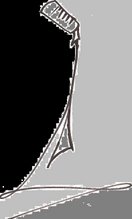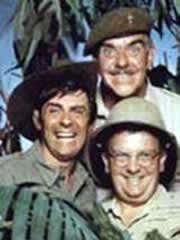
Mickey Mouse is 80 this week - there are very few entertainment figures in front of him - Fats Domino springs to mind, yet those early days of Mr Mouse where dark. He was banned from Germany in WW2 and the Italians didn't think he was fascist enough.
It was a bleak day on December 15, 1937, weather wise, but more of the life expectancy of a certain Mr Mickey Mouse - the new, hot-off-the-drawing-board cartoon character who literally took the world by storm and almost caused quite a storm whilst doing it.
Thousands of miles away across the sea in the UK, while American artists were congratulating themselves on creating a masterpiece of animal/cartoon history, politicians in the House of Commons were asking themselves some pretty interesting and serious questions.
First was the story of the published comic strip, "Mickey Mouse" in Belgrade. The accusations were so severe that it spelled the end of one British journalist's career.
"Mr Mander (Wolverhampton East, Labour), asked the Secretary of State for Foreign Affairs if he would state what action he proposed to take with reference to the expulsion of Reuter's correspondent, Mr H. D. Harrison, from Yugoslavia on the ground that he transmitted to foreign countries a statement that a "Mickey Mouse" comic strip in a Belgrade newspaper had been banned because it bore on national politics."
The press ran the story almost ten days before...
Mickey Mouse as a "revolutionary"
"According to reports from Belgrade the Yugoslav censor for art, literature, and drama has recognized in Mickey Mouse a dangerous agitator and ordered the Politika to surrender to him for destruction the latest strip or two (drawings and text) portraying Mickey Mouse's adventures, which have been appearing in serial form exclusively in that paper. There is happily no ground to fear that Yugoslavia is in any danger of losing touch for long with the personality or the activities of Mickey Mouse. But Mickey's activities in the guise of a "Prince" acquainting himself with the alleged corruption existing in high places in his country are regarded by the censor as containing revolutionary doctrines which must not be allowed to penetrate to the unsophisticated citizen...."
The infamous MP Anthony Eden (Foreign Secretary during World War II, briefly serving as Prime Minister (1955-1957) said in reply to Mr Mander,
"I was informed by the Yugoslav Government on December 7 that, in spite of repeated warnings, they had on many occasions had cause to complain of Mr Harrison's presentation of news to the British public. The Yugoslav Government further stated that they had been obliged on the occasion of Mr Harrison's last dispatch, dealing with an act of the censorship, to intimate to him that his continued presence in Belgrade would be undesirable. His Majesty's Minister at Belgrade took the matter up with the Yugoslav authorities, but they informed him that they were unable to alter their decision. It will be realized that the grant or withdrawal of permission to reside in any country is entirely a matter for the Government of that country to decide..."
Yet the story didn't stop there and the 'disgraced' journalist was not going home without a fight. All sounds a tad too far - after all, this is only a cartoon character, so surely this extremist event should not have resulted in a journalist being given the boot out of another country, and just when you would have thought that someone on the bench would have been on his side. Mr Eden said:
"It is not a question of whether it is right. We have always claimed for ourselves the right of acting as we think fit in relation to foreigners living in this country and as we attach importance to that, clearly I cannot take action which contradicts it...."
Not a good start for one of the world's most famous characters, yet it was in 1930, only a few years before where Mr Mouse had found himself banned from Germany - the "latent anti-German feeling" he apparently raised in the air, in a statement at the time, the German Board of Film Censors said,
"...the "artist evidently aimed at a comic representation of an action in the War. While the victorious mouse is distinguished by the French kepi, his enemies the cats are clearly recognizable as the German Army by their German steel helmets".
So before we begin to believe that Mickey Mouse started the war, in 1938, the Italians decided to jump in on the act, they banned the cartoon mouse for not being fascist enough, yes, you read that right. Yet he was eventually welcomed by the Nazi's in 1940 when Mickey met propaganda and put him in a film 'Naughty Naughty' to show how the Nazi movement saw America...
We have forgiven him since then....
MD 2008
Wednesday, November 26, 2008
Propaganda Puppet Mickey Mouse Turns 80 And He's Still the Political Nazi Figure
Posted by
Michelle Duffy
at
Wednesday, November 26, 2008
![]()
Subscribe to:
Post Comments (Atom)






No comments:
Post a Comment